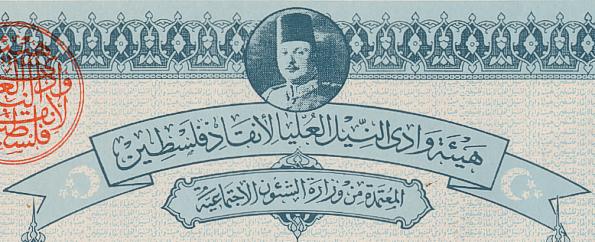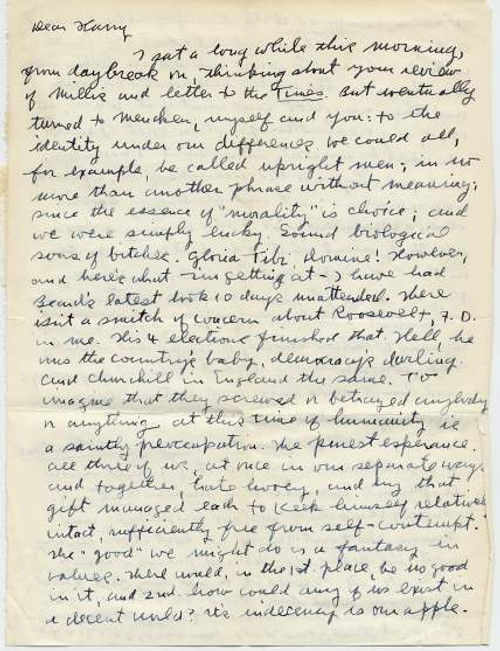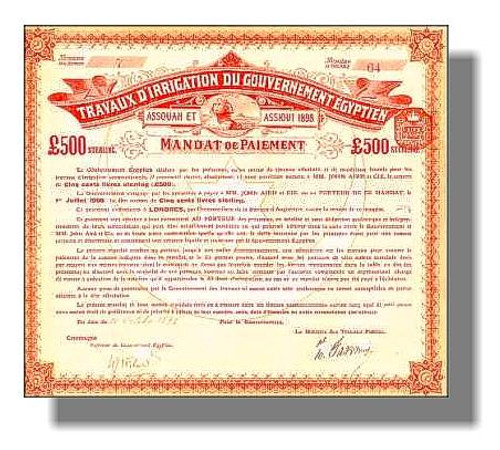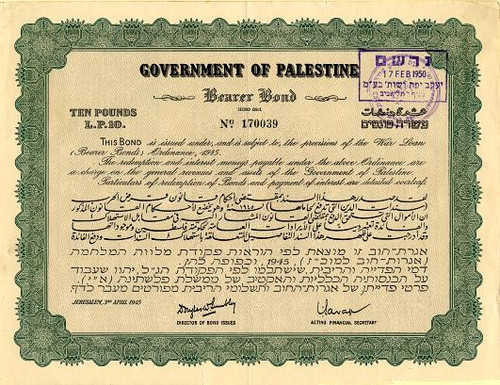Beautiful unissued certificate from the Head Committee of Nile Valley printed in 1948. This historic has an ornate border around it with a vignette of King Farouq I. This item is over 58 years old. 
Certificate Vignette These bonds were used as a donation to save Palestine from the occupation. King Farouq I was the 11th descendant of the Mohammed Ali dynasty. Farouq, the son of Fouad, and grandson of Khediwe Ismail, was born in Cairo. He started his education in Egypt and then travelled to London to continue his education. He returned to Egypt for his father's death and took the throne on 6 May. A custodianship council was formed till Farouq was 21 years of age. Farouq's 15-year reign witnessed a number of crucial events, including the convention of the Montreaux Treaty in 1937, the cancellation of the capitulation system, the choice of Cairo as a centre for the allies in the Middle East during the second world war, the establishment of the Arab League (AL), Egypt's involvement in the Palestine war, the cancellation of the 1936 Treaty, the cutting of diplomatic relations with the Axis powers and the burning of Cairo in 1952. The nation, who saw the young wise boy as a sign of hope for the future and a new departure in the government, idolised King Farouq. He had a confident personality that attracted people. He was soon in conflict with both the (WAFD) Party and the British ambassador. The members of the royal entourage, who had been chosen by Fouad because they were inimical to (WAFD) Party, encouraged Farouq to take a stand against the party and to come closer to the religious leaders in Al-Azhar. Egypt involvement in the world war, and later on, in war in Palestine, with faulty weapons that exploded in the faces of the Egyptian soldiers, laid bare the bankrupt nature of internal politics in Egypt and revealed the loss of leadership on the part of all political parties, not only the Wafd. Rumours of scandals in the king's private life were abundant. The monarchy eventually lost all respect and the government abdicated responsibility and showed as little moral fibre as the monarchy. Collision between the king and the army started as a result of the war of Palestine and animosity soon became apparent on the part of the young officers. On 26 July, the king received a warning from General Mohammed Naguib to abdicate the throne and leave Egypt on the same day. Farouq left Alexandria to Naples, where he remained until he died on 18 March 1965. then he was buried in Cairo.

Certificate Vignette








